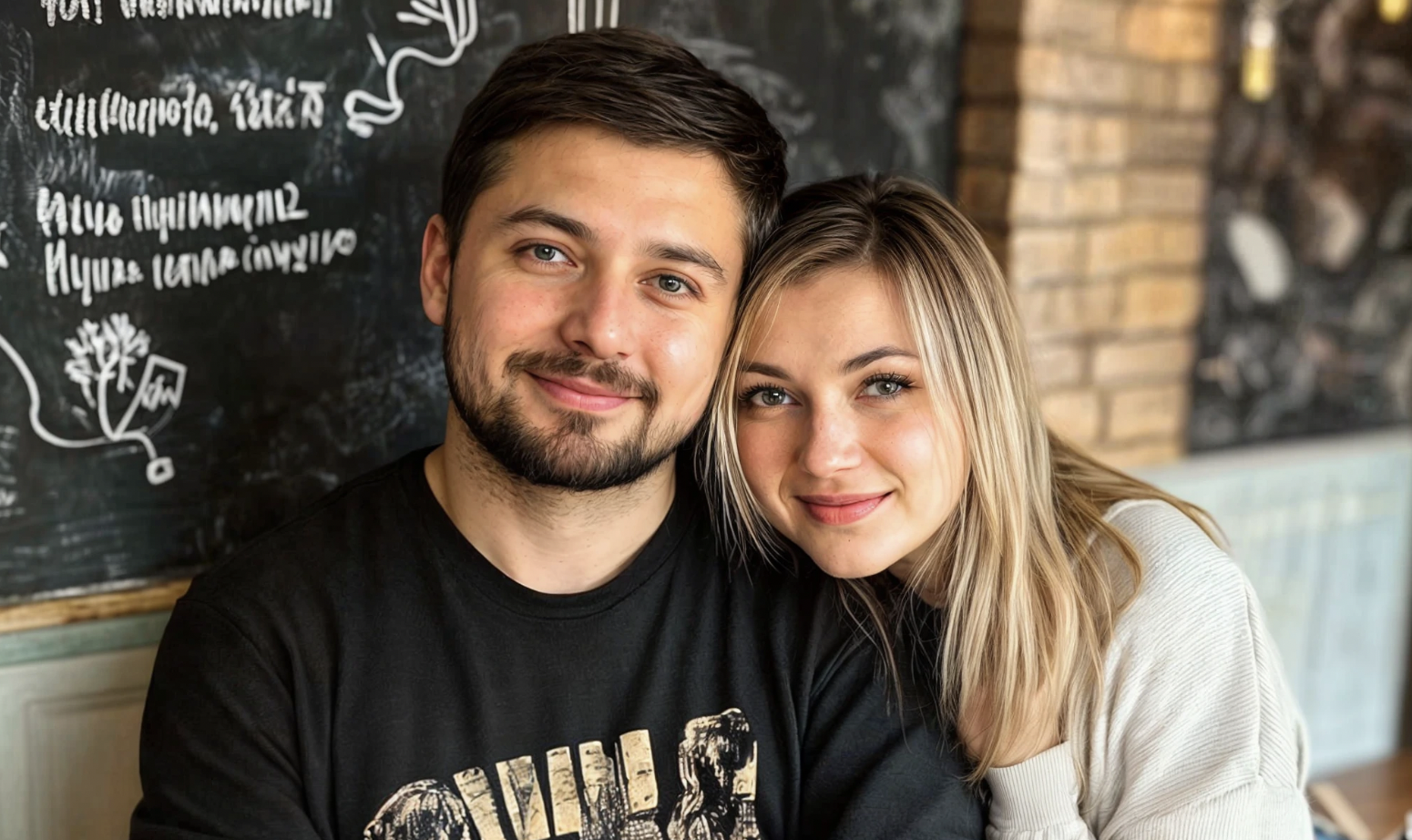Ludmila and Sergey lived together for fifteen years. Their marriage was a test of time: they went through difficult periods together, raised two children, and supported each other when needed. But, as in any long-term relationship, their connection gradually cooled. Ludmila began to notice that Sergey was less attentive to her needs, spent less time with the children, and increasingly talked about work.
She tried to rekindle the old feelings by suggesting weekends together and organizing romantic dinners, but none of it yielded the desired results. Her heart felt a chill, yet she didn’t know how to fight it. Sergey appeared distant, and gradually their conversations were reduced to mundane everyday matters, never touching on anything more personal.
One evening, when Sergey was once again staying late at work, Ludmila came across a message on his phone. The text from an unknown woman was simple yet intimate: “Thank you for yesterday. I’m so happy that you’re here.” Those words pierced her heart.
She silently placed the phone on the table and remained alone in the room. It was the moment she realized that everything was over. The marriage she had believed to be eternal no longer existed. Sergey had long been living another life, and all this time she had been trying to maintain an illusion.
The next day, Ludmila decided not to postpone the inevitable. When Sergey returned home, she calmly sat down across from him.
— “We need to talk,” she began, feeling her voice tremble with emotions she had been trying to contain.
Sergey looked at her with wariness, understanding that this conversation would bring nothing good.
— “You’re cheating on me,” Ludmila continued, not taking her eyes off his face. She expected him to start making excuses, maybe even to deny it, but instead, he silently lowered his head.
— “Yes,” he finally said. “I’ve long wanted to talk about it, but didn’t know how.”
Those words only deepened her pain. He had not been with her for a long time, and she had been trying all this time to preserve what was already broken. Ludmila’s world collapsed. Everything she had built turned out to be a lie.
— “I want a divorce,” he said quietly, as if hoping it would bring her relief.
But it brought nothing except an even greater sense of loss. Ludmila knew that this moment would come, yet she wasn’t prepared for it. Her life split into “before” and “after.”
After Sergey left, Ludmila found herself completely disoriented. Her home, which had always been filled with life, now seemed empty and cold. She continued to care for the children and go to work, but each day was a trial.
Her friends and family tried to support her, yet no words could drown out the pain she felt. She constantly replayed moments of their life together in her mind, trying to understand when everything went wrong. Why hadn’t she noticed it sooner? How could she have been so blind?
Ludmila sank deeper into her thoughts until one evening her sister, Katya, visited. Katya had always been the one who knew how to help Ludmila, even in the toughest moments.
— “Lyuda, you need something for yourself,” she said. “You always lived for others, and now it’s time to think about yourself.”
Katya suggested that Ludmila sign up for pottery classes—a hobby she once loved in her youth. At first, the idea seemed strange—how could pottery help her cope with the pain of divorce? But Ludmila agreed to give it a try.
The first pottery class became something new and unusual for Ludmila. Her hands trembled when she first touched the clay. But as she began to mold her first creations, she noticed that her thoughts started to clear and her heart felt a little lighter.
Pottery became her salvation. She immersed herself in the process of creating something new, finding therapy for her soul in it. With every new piece, she felt her heart begin to heal. The clay in her hands transformed into beautiful and sturdy forms, helping her realize that she could be strong and whole, even though her past had shattered.
Ludmila started spending more and more time creating pottery, and soon her work began to attract attention. Her instructor suggested organizing a small exhibition at a local art café, marking her first step towards a new beginning.
At the exhibition, Ludmila met Mikhail, an interior designer who was captivated by her ceramic pieces. Their conversations grew into long meetings where they shared their views on life, creativity, and how art can help people cope with pain.
Mikhail became someone who didn’t try to replace the past but helped her see the light in the future. He was patient, attentive, and always supportive of her new endeavors. Their friendship gradually evolved into something more.
Ludmila did not rush into a new relationship, but she understood that, for the first time in a long while, she felt alive. She no longer felt that she had to be a victim of her past. Now, she was the one building her future with her own hands—just like the ceramic pieces she created.
After several months, Ludmila’s life changed dramatically. Her days became filled with creativity, new projects, and a relationship with Mikhail that brought her joy. She no longer dwelled on the past or tormented herself with questions about what went wrong.
One day, while sitting in her workshop and working on a new project, Ludmila realized that her life had gained a new meaning. She had found her path—through pain, through creativity, through self-discovery.
Her hands no longer trembled when molding clay. Now they were confident and strong, just like her. Ludmila understood that any destruction could be the beginning of something new, and she was ready for that new chapter.
